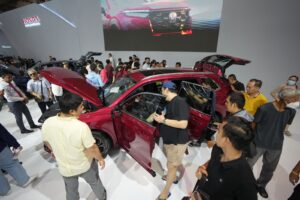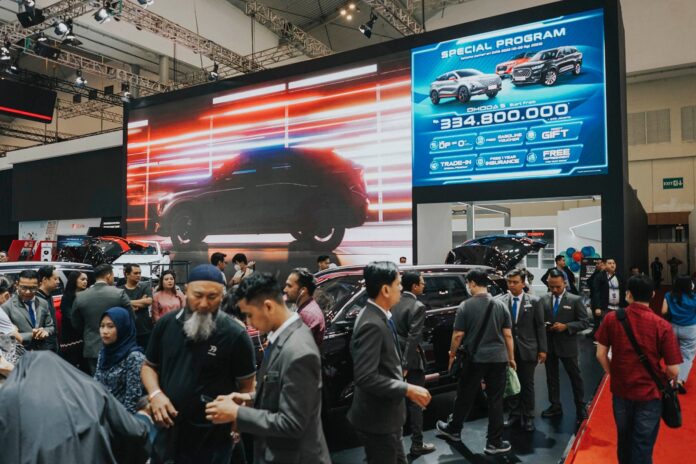Car sales in Indonesia seem to be cursed as they have never exceeded 1 million units. Each year, the 1 million unit mark appears to be a psychological burden that needs to be overcome.
This burden has been felt since 2013. Until now, the government and automotive industry players have tried every possible way to exceed 1 million units in car sales.
It is known that the highest car sales in Indonesia occurred in 2013, reaching 1,229,881 units. This increase happened after the government issued regulations on energy-efficient and affordable motor vehicles, commonly known as Low-Cost Green Cars (LCGC).
At that time, several car manufacturers immediately took advantage of the policy. Various types of LCGC cars quickly filled the automotive market. The prices were affordable, with some even priced at just Rp 100 million.
As a result, LCGC sales in 2013 dominated 30 percent of the domestic market. After 2013, car sales in Indonesia have never exceeded 1 million units.
Kukuh Kumara, Secretary-General of the Indonesian Automotive Industry Association (Gaikindo), said the stagnation was due to the rising prices of cars. This condition is not accompanied by the income of the Indonesian people, coupled with the increasing prices of basic necessities.
“One of the factors causing the stagnation in the car market is that new car prices are not affordable for the per capita income of the population. The gap between household income and new car prices is widening,” Kukuh said in Jakarta on Wednesday (10/7/2024).

Acting Director General of Metal, Machinery, Transportation Equipment, and Electronics (ILMATE) at the Ministry of Industry (Kemenperin), Putu Juli Ardika, expressed a similar view. According to him, there needs to be a stimulus to encourage people to buy new cars.
“The stagnation of car sales in Indonesia is influenced by the weakening purchasing power of the Indonesian people. In this effort, a program is needed to stimulate the purchase of new cars. Of course, providing stimulus must still prioritize Indonesia’s commitment to reducing carbon emissions,” he said.
Putu mentioned that one of the steps taken by the government is to provide incentives for electric cars. This makes electric cars marketed in Indonesia have affordable prices.
“What we need to do to drive this industry is necessary actions. How incentives are extended to low-emission vehicles because our BEV (Battery Electric Vehicle) is almost the same as other countries,” he said.
In addition, the Ministry of Industry will also try to lower interest rates to ease the burden on Indonesians in purchasing new cars with credit schemes. This method is believed to be effective, as most Indonesians buy vehicles through installments.
“Regarding the decline in purchasing power, relaxing interest rates for purchasing new cars on credit can be one option to restore public interest in buying new cars,” Putu concluded.





